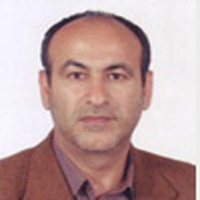Optimization of As(V)removal from aqueous solutions by Singlewalled Cabon Nanotubes
Arsenic contamination of water resources is a global problem. Drinking of arsenic-rich water over a long period results in various health effects including skin problems، skin cancer، cancers of the bladder، kidney and lung، and diseases of the blood vessels، and possibly diabetes، high blood pressure and reproductive disorders. Carbon nanotubes (CNTS) in the field of nanotechnology، as a new adsorbents were investigated in several studies. In this research، optimization of As (V) removal from aqueous solutions by Single-walled Cabon، investigated.
Carbon nanotubes Carbon was prepared from Research Institute of Iran''s oil industry. Initially the carbon nano tubes was Functionalized by nitric acid. Experiments based on the response surface methodology was designed. Test data assessment by using the software Minitab 16، Excel 2007، and regression، correlation and analysis of variance was performed.
In this study، increasing the amount of adsorbent، contact time، initial concentration and decreasing pH on arsenate removal efficiency was affected. Maximum capacity of arsenate adsorption by carbon nanotubes equal to 8. 84 mg/g. Arsenate removal percentage increased with decreasing pH and increasing of concentrations of arsenate and absorbent value.
The model with the highest coefficient (R2) ration predicted (Predicted R2) 95/01 and 72/25for carbon single-wall carbon nano tubes by nitric acid was estimated with the maximum percentage for arsenate removal of65%and a maximum capacity8/48. Using response surface، the optimal conditions (PH = 3-6 and the absorption of 150 mg/l in sample volume (100ml) Was provided، respectively
-
Assessing the Need for Continuity of Preventive Environmental Health Recommendations to Avoid Contamination With COVID-19: A Systematic Review Study
Mohammadali Zazouli, , Hadi Niknejad, Alireza Ala *
Journal of Advances in Environmental Health Research, Summer 2024 -
Investigating the release of microplastics from tea bags into tea drinks and human exposure assessment
Ali Yousefi, Hossein Movahedian Attar*,
Environmental Health Engineering and Management Journal, Summer 2024



